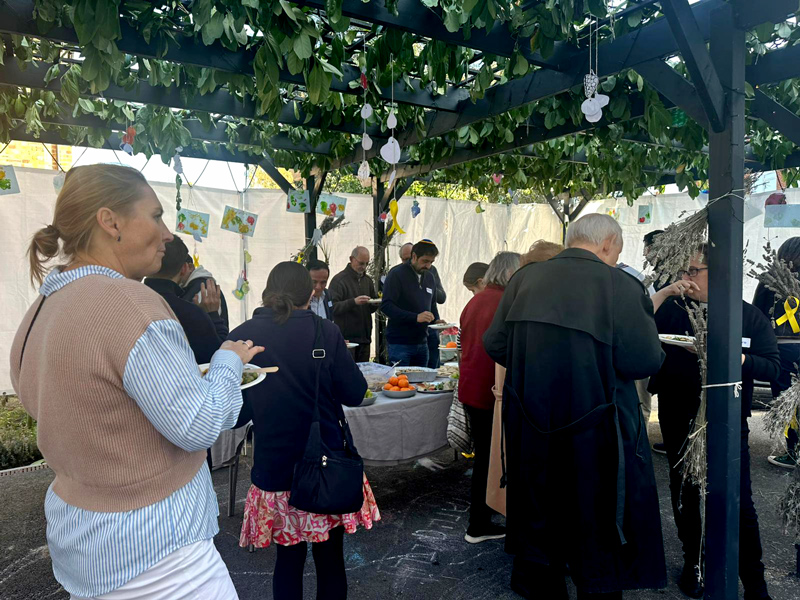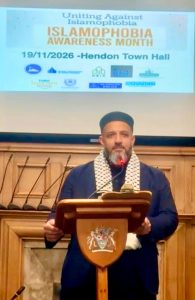 On 19 November 2025, the Consortium of Barnet Mosques hosted a powerful and an inspiring community-driven event at Hendon Town Hall as part of Islamophobia Awareness Month 2025.
On 19 November 2025, the Consortium of Barnet Mosques hosted a powerful and an inspiring community-driven event at Hendon Town Hall as part of Islamophobia Awareness Month 2025.
The theme “Uniting Against Islamophobia” brought together an impressive lineup of speakers, Barnet Mosque’s Leaders ,council leaders, educators, police representatives, community activists and Barnet’s vibrant Muslim community in order to raise awareness of Islamophobia and strengthen borough-wide unity.The event served as both an awareness platform and a call to collective responsibility.
The evening opened with welcoming remarks by Irfan Hussain highlighting the purpose of the event: Connection , awareness, and collective action.
Dr Sufi ,Trustee of High Barnet and Finchley Mosque welcomed the Mayor of Barnet - Danny Rich .He later on addressed the issue of Islamophobia with clarity and passion in his opening speech quoting real life examples
This was followed by a reflective Qur’ān recitation by 16 year old A-level Student from Dame Alice Owen student - Hibaan Hussain, reminding attendees of Islam’s emphasis on diversity, dignity, and moral character.
Irfan reminded attendees:
“Tonight is about connection, action, and building a community where everyone feels safe, respected, and valued. Barnet’s diversity is our strength.”
 Attendees were moved by a heartwarming nasheed performance by the Barnet Hill Academy Choir.
Attendees were moved by a heartwarming nasheed performance by the Barnet Hill Academy Choir.
Talks throughout the evening explored the roots, realities, and impact of Islamophobia—from institutional bias to hate crime reporting, community experiences, and efforts to promote inclusivity in education and exploring the rich Muslim history within Barnet.
Keynote speakers included
- Celsabil Hadj-Cherif - MEND(Muslim Engagement and Development)
- Bismha Afzal - EAI ( Educate Against Islamophobia)
- Akeela Ahmed MBE - BMT ( British Muslim Trust )
- Bibi Khan MBE DL - NLCOM ( North London Council of Mosques)
- AbdulMaalik Tailor - Halal Tourism Britain / Barnet Muslim History)
- Cath Shaw - Chief Executive, London Borough of Barnet
- Detective Superintendent Katie Harber - Met Police NW BCU)
- PC Mike Buckley - Hate Crime Outputs & Performance Officer for Met Police NW BCU
Special thanks were extended to Cllr Zahra Beg for facilitating the venue and to representatives from Finchley, High Barnet, East Barnet, Edgware, and Hendon Mosques along with Barnet Hill Academy for their volunteer support and leadership.
The evening concluded with the reminder that tackling Islamophobia is a collective responsibility, and that Barnet continues to stand as a borough committed to cohesion, understanding, and respect.The event demonstrated high engagement and strong partnership across institutions. The collective commitment shown highlights Barnet’s leadership in fostering inclusivity and tackling discrimination.
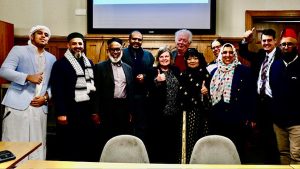
In the closing message Cllr Barry Rawlings emphasised Barnet’s commitment to inclusivity, safety, and partnership with the Muslim community, noting the vital importance of events like this in promoting awareness
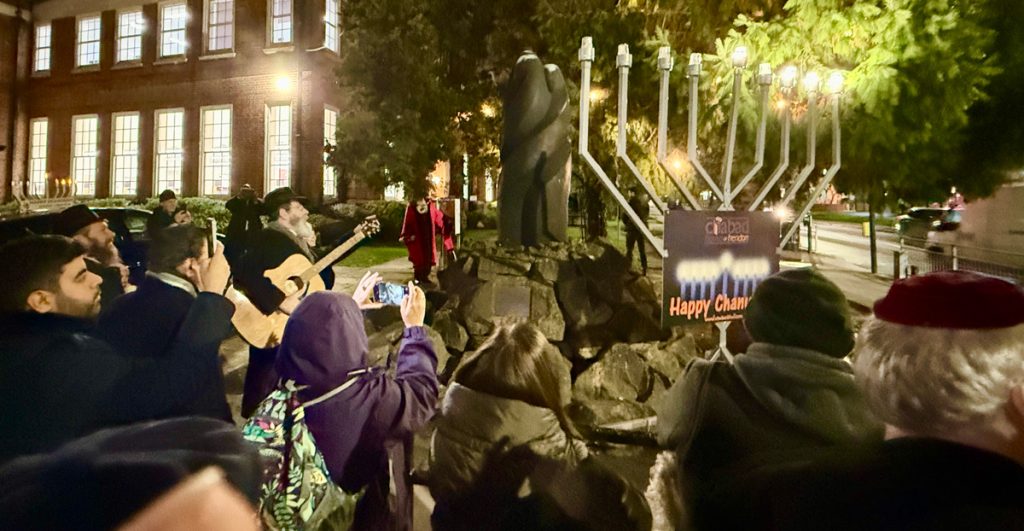
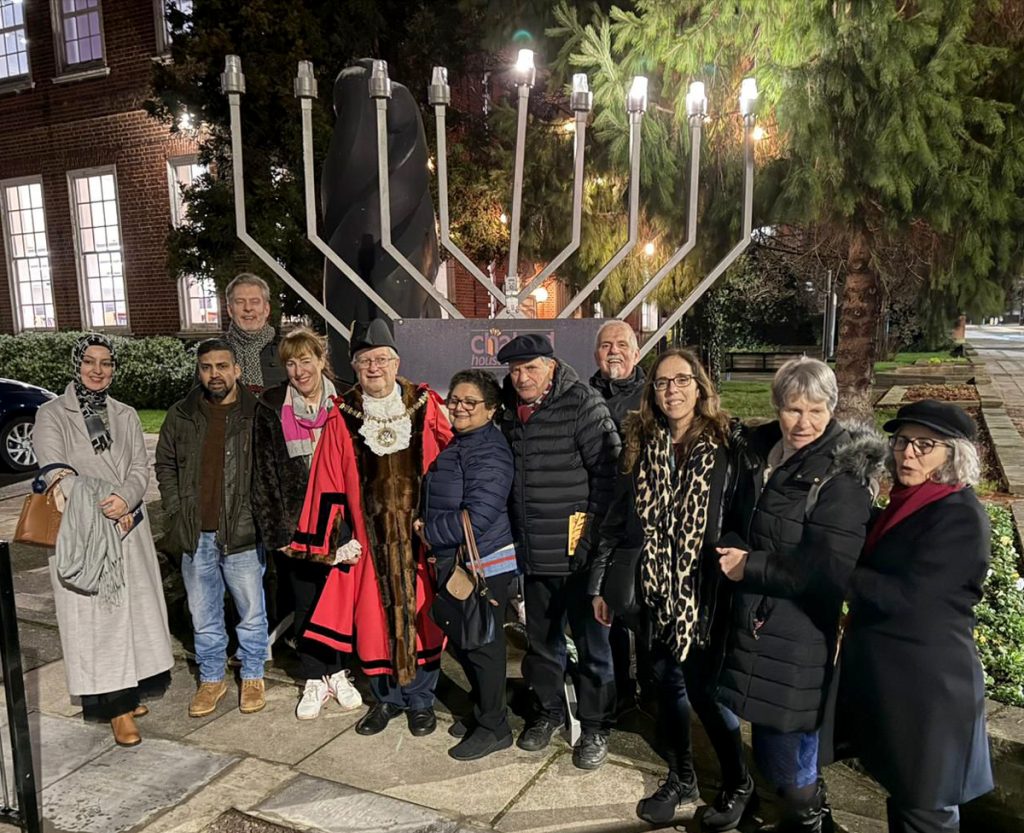
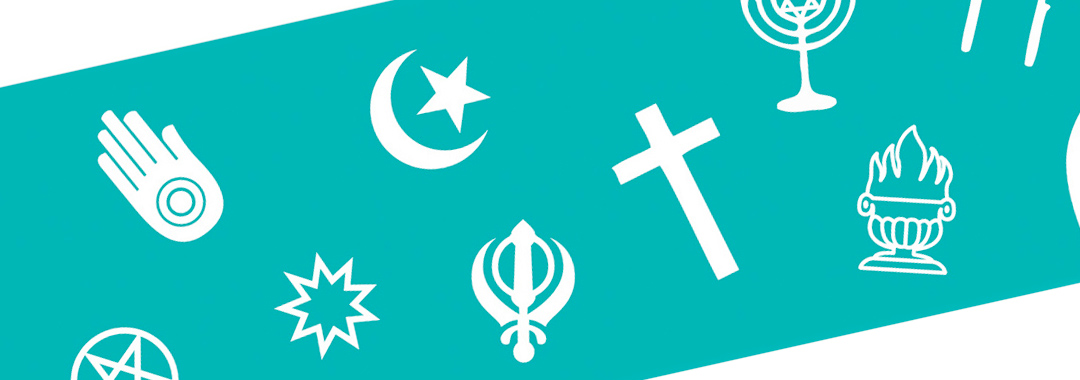
 On 19 November 2025, the Consortium of Barnet Mosques hosted a powerful and an inspiring community-driven event at Hendon Town Hall as part of Islamophobia Awareness Month 2025.
On 19 November 2025, the Consortium of Barnet Mosques hosted a powerful and an inspiring community-driven event at Hendon Town Hall as part of Islamophobia Awareness Month 2025. Attendees were moved by a heartwarming nasheed performance by the Barnet Hill Academy Choir.
Attendees were moved by a heartwarming nasheed performance by the Barnet Hill Academy Choir.

 BMFF’s stall showcased our ongoing work on sustainability, interfaith cooperation, and community cohesion in Barnet. This included stories of our covenant with the local council, partnerships with faith and academic institutions such as Middlesex University, and collaboration with Barnet Council on green transition work toward reaching net zero by 2042. We also highlighted projects with schools, charities, and community groups across the borough.
BMFF’s stall showcased our ongoing work on sustainability, interfaith cooperation, and community cohesion in Barnet. This included stories of our covenant with the local council, partnerships with faith and academic institutions such as Middlesex University, and collaboration with Barnet Council on green transition work toward reaching net zero by 2042. We also highlighted projects with schools, charities, and community groups across the borough.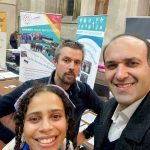

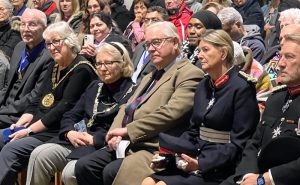
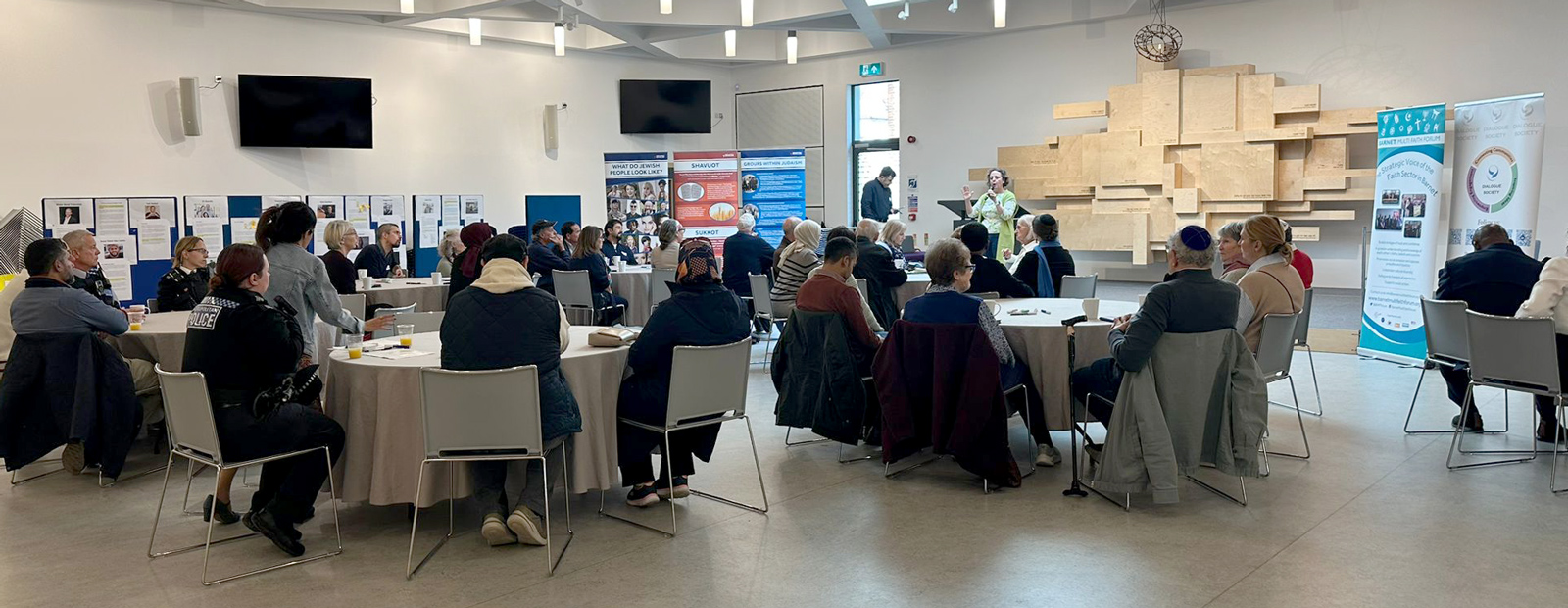
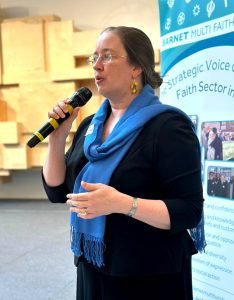
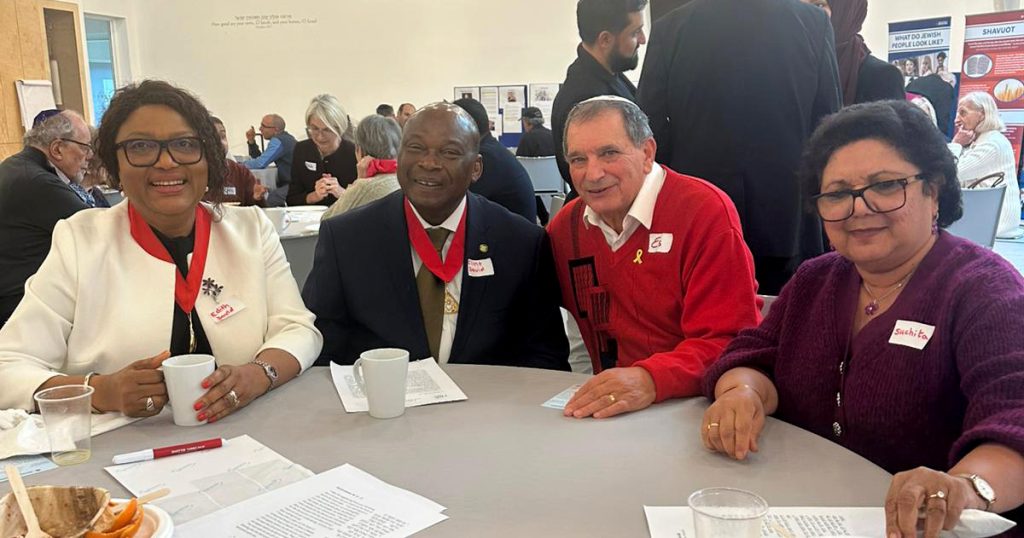 The Forum also wishes to acknowledge the valued partnership and support of Middlesex University and the Sonia Community, whose collaboration was instrumental in making the event both meaningful and memorable.
The Forum also wishes to acknowledge the valued partnership and support of Middlesex University and the Sonia Community, whose collaboration was instrumental in making the event both meaningful and memorable.